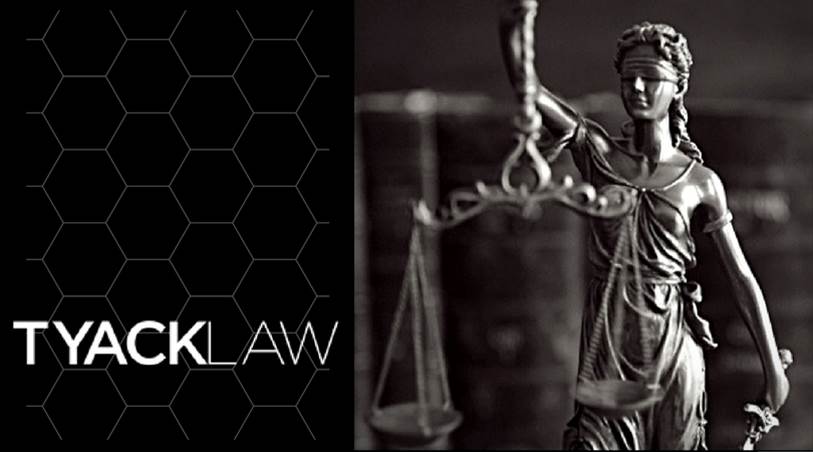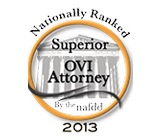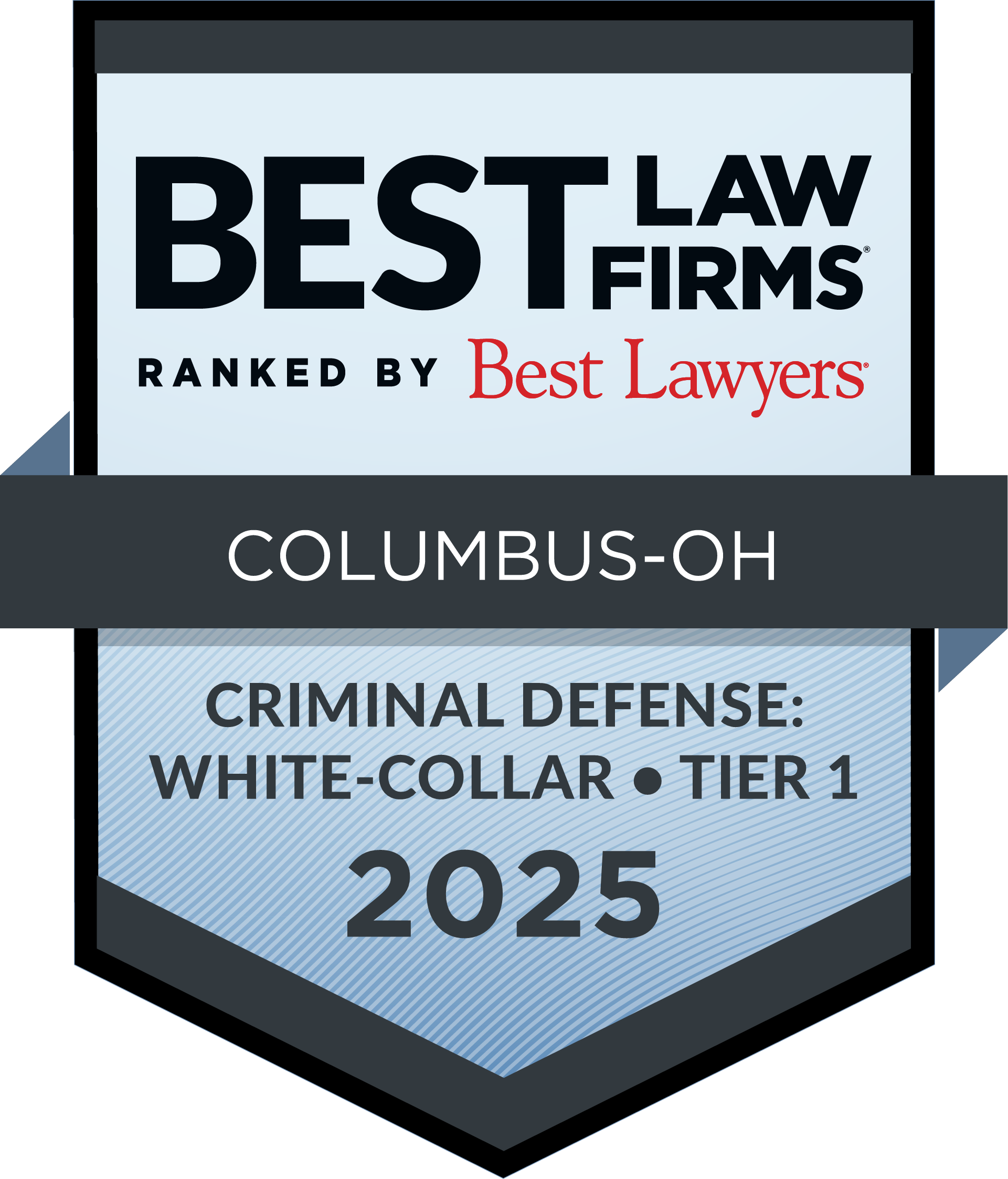
By: Holly Cline
Columbus, Ohio became the stage for a national news story on the morning of Thursday, July 12, 2018 after Stephanie Clifford (aka “Stormy Daniels”) was arrested and charged with three misdemeanor violations at a local adult entertainment club. Ultimately, the charges against Ms. Clifford were dismissed, as Ms. Clifford was not a regular performer at the club, which is required under the statutory provisions—R.C. 2907.40(C)(2)—for which she was charged with violating.
R.C. 2907.40(C)(2)
The statutory provision under which she was charged is a seldom-used Ohio law. Effective September 4, 2007, Section 2907.40(C)(2) of the Ohio Revised Code prohibits any employee “who regularly appears nude or semi-nude on the premises of a sexually oriented business” from knowingly doing any of the following to a person who is not a member of the employee’s immediate family:
- Touching a patron or another employee;
- Touching the clothing of a patron or another employee; or
- Allowing a patron or another employee to touch the employee or the employee’s clothing.
If the offender touches a specified anatomical area of a patron or another employee, or the clothing covering a specified anatomical area, it is a first-degree misdemeanor offense. R.C. 2907.40(A)(16) defines “specified anatomical areas” as "human genitals, pubic region, and buttocks and the human female breast below a point immediately above the top of the areola."
If the offender does not touch a specified anatomical area of a patron or another employee, or the clothing covering a specified anatomical area, it is a fourth-degree misdemeanor offense.
Ohio Appellate Cases Related to R.C. 2907.40(C)(2)
Ohio appellate courts have only reviewed cases pertaining to R.C. 2907.40(C)(2) on two occasions. Both cases were heard by the Tenth District Court of Appeals, and were appeals of the trial court's affirmation of administrative actions brought against adult entertainment clubs by the Ohio Liquor Control Commission.
In 2014, WCI, Inc., conducting business under the business name “Cheeks,” was operating a “sexually oriented business”—an adult club—in the Dayton area. While conducting an investigation of Cheeks, an Ohio Department of Safety (ODPS) investigator requested and was given a “private dance” by a Cheeks dancer. The investigator concluded that the dancer “behaved in a manner that violated R.C. 2907.40(C)(2)” by touching the investigator while the dancer was “nude or seminude.”
The performer’s violations were the basis for the Ohio Liquor Control Commission’s administrative action against Cheeks, which was found to be in violation of Ohio Administrative Code 4301:1-1-52. A criminal action was filed against the dancer, but was later reduced to disorderly conduct.
Cheeks appealed the Commission’s administrative decision to the Franklin County Court of Common Pleas. The Court of Common Pleas affirmed the Commission’s decision, and the Tenth District Court of Appeals affirmed the lower court’s decision in WCI, Inc. v. Ohio State Liquor Control Comm'n, 2016-Ohio-4778.
The only other case involving R.C. 2907.40(C)(2) appealed to an Ohio district court was a 2012 case with a nearly identical procedural history (34 Jefferson, LLC v. Liquor Control Comm'n, 2012-Ohio-3231 (10th Dist. Franklin)). In that case, ODPS investigators observed an employee-dancer of a Dayton adult entertainment club permit patrons to touch a “specified anatomical area” of his body. The dancer was originally charged with public indecency and disorderly conduct in the Dayton Municipal Court. However, those charges were later dismissed and the employee-dancer was charged the first-degree misdemeanor offense of R.C. 2907.40(C)(2). Ultimately, by way of a plea agreement with the prosecutor, the employee-dancer pled guilty to the fourth-degree misdemeanor offense of R.C. 2907.40(C)(2).
However, after the Commission issued an Order finding that both alleged violations of Ohio Adm.Code 4301:1-1-52(B)—specifically, disorderly conduct under Ohio Adm.Code 4301:1-1-52(B)(1), and public indecency under Ohio Adm.Code 4301:1-1-52(B)(4)—had occurred, the entertainment club, 34 Jefferson, LLC—doing business as “Masque”—appealed the administrative agency’s decision to the Franklin County Court of Common Pleas. The trial court affirmed in part and reversed in part the order of the Commission, finding that there was reliable, probative, and substantial evidence to support the Commission’s finding as to the charge of public indecency in violation of Ohio Adm.Code 4301:1-1-52(B)(4), but that the Commission’s finding as to a violation of Ohio Adm.Code 4301:1-1-52(B)(1) was not supported by reliable, probative, and substantial evidence and was not in accordance with law.
Masque appealed that decision to the Tenth District Court of Appeals, arguing in relevant part, that the common pleas court erred in affirming the decision of the Liquor Control Commission that the adult entertainment club violated Ohio Admin. Code 4301:1-1-52(B)(4), because the statute that underlies the alleged violation, R.C. 2907.09, is unconstitutional under the First and Fourteenth Amendments on its face and as applied to an expressive dance performance.
In evaluating this argument, the appellate court noted that the United States Supreme Court has recognized that “nude dancing * * * is expressive conduct, although * * * it falls only within the outer ambit of the First Amendment’s protection.” Erie v. Pap’s AM., 529 U.S. 277, 289, 120 S. Ct. 1382, 146 L. Ed. 2d 265 (2000).
In Barnes v. Glen Theatre, Inc., 501 U.S. 560, 111 S. Ct. 2456, 115 L. Ed. 2d 504 (1991), the Supreme Court considered a public indecency statute as applied to nude dancing, and adopted the four-part test of United States v. O’Brien, 391 U.S. 367, 88 S. Ct. 1673, 20 L. Ed. 2d 672 (1968) (establishing the test to determine whether governmental regulation involving symbolic speech was justified), in determining the constitutionality of a government rule or regulation proscribing protected expressive conduct. Under that test, a government regulation is sufficiently justified if it (1) is “‘within the constitutional power of the Government,’“ (2) “‘furthers an important or substantial governmental interest,’“ (3) “‘the governmental interest is unrelated to the suppression of free expression,’“ and (4) “‘the incidental restriction on alleged First Amendment freedoms is no greater than is essential to the furtherance of that interest.’“ Barnes at 567, quoting O’Brien at 377.
In the 34 Jefferson, LLC case, the adult entertainment club argued that Ohio’s public indecency statute, as applied to an expressive dance performance, is a content-based prohibition on performances likely to offend the view. Rejecting this argument, the Tenth District Court of Appeals noted that:
"In general, courts have recognized that Ohio Adm.Code 4301:1-1-52 (“Rule 52”) is a content-neutral regulation designed to address the negative secondary effects relating to adult establishments. See J.L. Spoons, Inc. v. Dragani, 538 F.3d 379, 382 (6th Cir. 2008) (holding that Rule 52, which is “almost identical” to the regulation upheld by the United States Supreme Court in Pap’s, “is a constitutional, content-neutral regulation of undesirable secondary effects, including prostitution, drug trafficking, and assault, associated with nude dancing in an environment serving alcohol”); Junction 615, Inc. v. Liquor Control Comm., 135 Ohio App.3d 33, 40, 732 N.E.2d 1025 (11th Dist. 1999) (“Rule 52 was not intended to suppress free speech, but was enacted to further the government’s interest in public decency, sobriety, and good order in liquor establishments”)."
The appellate court therefore concluded that both the subject regulation (Ohio Adm.Code 4301:1-1-52(B)(4)) and statute (R.C. 2907.09) fall within the government’s police powers and further a substantial government interest. See 161 Dublin, Inc. v. Liquor Control Comm., 10th Dist. No. 01AP-134, 2001 Ohio 8863 (“Restrictions on public nudity, public decency, and erotic dancing in liquor establishments are within the constitutional power of the government”).
Although this analysis applied in the context of a public indecency violation under R.C. 2907.09, a similar analysis would likely be employed if the same constitutional challenges were raised about R.C. 2907.40(C)(2).
Federal Court Review of R.C. 2907.40(C)(2)
In 84 Video/Newsstand, Inc. v. Sartini, 455 Fed. Appx. 541 (6th Cir. 2011), the Sixth Circuit Court of Appeals affirmed the United States District Court for the Northern District of Ohio, Eastern Division's decision granting the defendants' motion for summary judgment.
In that case, the Sixth Circuit held that R.C. 2907.40 survived scrutiny under the O'BrienTest because passage of such a law was within the power of the state legislature, the law furthered a substantial government interest, and the evidence was sufficient to demonstrate a reasonable belief that sexually oriented businesses caused negative secondary effects.
Defending a R.C. 2907.40(C)(2) Criminal Charge
In light of the current case law, challenging the constitutionality of R.C. 2907.40 may not be the most effective route for criminal defendants charged with R.C. 2907.40(C)(2). Instead, the most successful challenge to a charge under R.C. 2907.40(C)(2) may ultimately be to argue that, under the statute, the State bears the burden of proving that the alleged offender is a regular performer at an adult club. In other words, the regularity of the alleged offender's performances should be an element of the offense.
Moreover, because the meaning of "regular performer" is ambiguous—does "regular" mean every day? every week? a couple of times every couple of months?—challenging the ambiguity of the statute may be another way to successfully challenge charges brought pursuant to R.C. 2907.40(C)(2).
Disclaimer: The information in this blog post (“post”) is provided for general informational purposes only, and may not reflect the current law in your jurisdiction. No information contained in this post should be construed as legal advice from the Tyack Law Firm Co., L.P.A., or the individual author, nor is it intended to be a substitute for legal counsel or representation on any subject matter. No reader of this post should act or refrain from acting on the basis of any information included in, or accessible through, this post without seeking the appropriate legal or other professional advice on the particular facts and circumstances at issue from a lawyer licensed in the recipient’s state, country, county, or other appropriate licensing jurisdiction.
Talk with an experienced lawyer today.
Fill out the form below to get started with your case evaluation.















